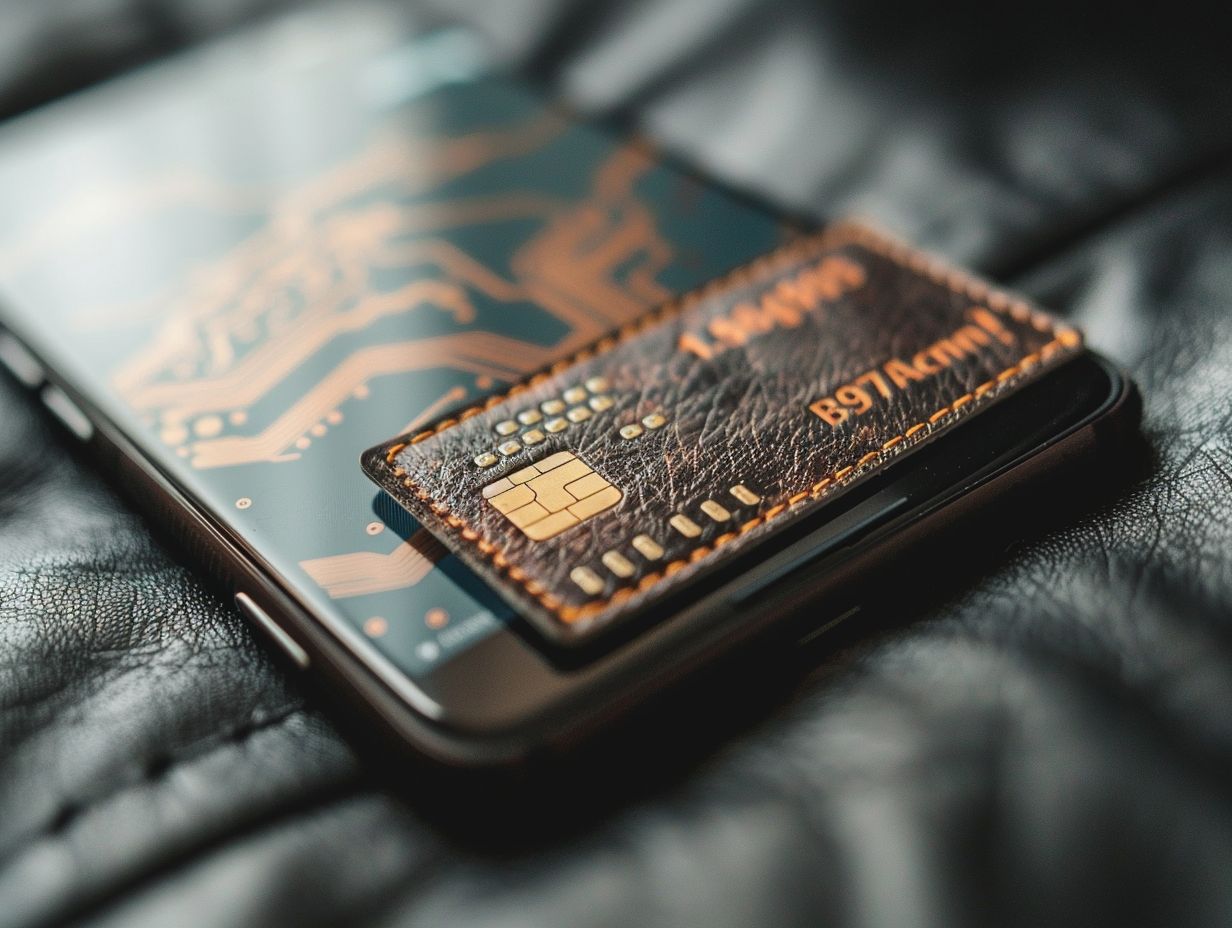Curious about crypto addresses and how they work?
We will explore the different types of crypto addresses, how to create a Bitcoin/Ethereum/crypto address, and how to find your wallet address.
Find out how to use your wallet address for sending and receiving payments, get answers to frequently asked questions about crypto wallet addresses, and learn about securing your crypto wallet address.
Discover the differences between using a wallet address versus exchanges.
What is a crypto address and how does it work?
A cryptocurrency address serves as a distinctive identifier utilized in transactions involving digital assets on the blockchain network. It comprises a public key shared for transaction purposes and a private key exclusively known to the owner to uphold security measures. In effectuating cryptocurrency transactions, individuals employ their wallet’s address to execute secure transactions on the blockchain.
The public key, typically serving as the recipient’s address, encrypts transaction details to ensure that only the corresponding private key can decipher and authorize the transfer. This symbiotic relationship between the public and private keys establishes a secure communication medium, thereby thwarting unauthorized access and preserving transaction integrity.
These keys are generated through cryptographic algorithms, rendering it highly challenging for malicious entities to tamper with transactions or access funds without the owner’s authorization, thus bolstering the overall security of cryptocurrency transactions.
Different types of crypto addresses with examples
In the blockchain ecosystem, various types of crypto addresses are utilized, such as Segwit, Bech32, Legacy, P2PKH, P2SH, Taproot, and BC1P. Each address type possesses a distinct format and compatibility with diverse wallets and protocols.
Segwit, short for Segregated Witness, was developed to tackle the scalability challenges in Bitcoin by segregating transaction signatures from transaction data. Bech32 represents a native Segwit address format that commences with ‘bc1’, providing enhanced error detection capabilities and minimizing human errors. Legacy addresses, typically starting with ‘1’, signify the original format utilized before the introduction of Segwit.
P2PKH, denoting Pay-to-Public-Key-Hash, denotes a prevalent address type that remains backward compatible with older systems. On the other hand, P2SH, or Pay-to-Script-Hash, enables more intricate scripting possibilities compared to P2PKH. Taproot, a recent upgrade, amplifies privacy and efficiency by obscuring complex spending conditions.
Lastly, BC1P serves as a condensed representation for Bech32 addresses, simplifying the reference to these particular address types for both users and developers.
Creating a Bitcoin/Ethereum/crypto address
To generate a Bitcoin, Ethereum, or any other cryptocurrency address, users are required to create a wallet. This can be done either through a wallet provider such as BitPay, Kraken, or Coinbase, or through the utilization of a software or hardware wallet. As part of the creation process, users are provided with a seed phrase, which serves as a backup enabling the restoration of access to their wallet in the event of loss or theft.
The selection of an appropriate wallet provider holds significant weight as it dictates the level of security and convenience that the user will encounter. Subsequently, once the wallet has been established, it is imperative for the user to securely maintain the seed phrase, ideally in an offline setting and within a secure location.
Furthermore, the implementation of robust passwords and the activation of two-factor authentication serve as fundamental measures to heighten the security of the cryptocurrency address. Through the meticulous adherence to these procedures, users can guarantee the protection of their digital assets.
Finding your wallet address
Determining the wallet address for digital assets involves utilizing the services of your wallet provider’s platform or utilizing the CoinGecko API for select cryptocurrencies. In the case of certain assets such as NFTs or those stored within smart contracts, the address may vary depending on the platform utilized and the terms of the contract.
When seeking to ascertain the wallet address for NFTs, individuals can access their NFT marketplace account and locate the wallet section where the unique address is typically exhibited. In instances where assets are housed within smart contracts, individuals may be required to engage with the specific contract through platforms such as Etherscan or BscScan in order to retrieve their wallet address. The integration of the CoinGecko API can streamline this process by providing a centralized platform for monitoring multiple wallet addresses across different assets, thereby simplifying the management of one’s digital portfolio.
Using your wallet address for sending and receiving payments
Upon obtaining your wallet address, you are able to securely send and receive cryptocurrency payments.
The process of sending cryptocurrency funds commences with accurately entering the recipient’s wallet address. This initial step guarantees that the funds are correctly directed to the intended individual or entity. Along with specifying the amount you intend to send, there is also the option to include a memo for supplementary information.
On the recipient’s end, providing your wallet address to the sender allows for the seamless transfer of the desired funds directly to your account. Wallet providers play a vital role in facilitating these transactions by ensuring the security and encryption of payment data. To bolster security measures, many wallets provide features such as two-factor authentication and encryption protocols to protect users’ assets against potential cyber threats.
Frequently Asked Questions about crypto wallet addresses
In the realm of cryptocurrency, users frequently encounter questions concerning wallet addresses. Common inquiries pertain to the safety implications of sharing wallet addresses, the distinction between public keys and wallet addresses, the public nature of crypto addresses, security vulnerabilities such as malware and phishing attacks, and the functionality of address changes, expiration, and refund addresses.
Users often express curiosity regarding the risks associated with public exposure of their wallet addresses and the level of security offered by various types of wallets. Effective management of addresses plays a critical role in preventing unauthorized access and ensuring a seamless transaction process.
Remaining vigilant against malware and phishing attempts is essential, given their potential to compromise the security of one’s wallet. Proficiency in managing address modifications, along with knowledge of when and how to utilize refund addresses, enables users to navigate the intricacies of crypto transactions with confidence.
Is sharing my wallet address safe?
Sharing your wallet address is generally considered secure for conducting transactions; however, it is essential to exercise caution when disclosing it to others. Implementing security features such as address changes and digital mailboxes can enhance the protection of your transactions and mitigate the risk of unauthorized access to your digital assets.
For additional security measures, it is advisable to consider the utilization of ledger systems that offer an enhanced level of security by storing your transaction history in a tamper-proof digital ledger. This innovative technology ensures transparency and accountability while minimizing the likelihood of fraudulent activities or unauthorized modifications.
Maintaining the security of your assets requires regular updates to your security protocols and the adoption of safe digital practices, such as enabling two-factor authentication. These proactive measures serve to strengthen your defenses against potential threats in the dynamic landscape of digital transactions.
Is the public key the same as the wallet address?
The public key and the wallet address are distinct but interconnected elements in cryptocurrency transactions. While the public key is derived from the private key and is utilized in generating the address, the wallet address functions as a user-friendly identifier for sending and receiving digital currency.
This relationship is fundamental for facilitating secure transactions within the blockchain network. The public key, serving as a cryptographic key that is openly shareable, permits others to verify transactions linked with the corresponding wallet address.
Conversely, the wallet address serves as the transaction destination, preserving user anonymity. Through the utilization of these two components, blockchain technology upholds transparency and security by enabling secure communication and financial transactions across a decentralized network.
Are crypto addresses public information?
Crypto addresses are generally considered public information, as they are openly shared for the purpose of transactions. The security and access control to the associated digital assets are ensured through the combination of the public address with the private key or seed phrase.
Even the most sophisticated cryptographic algorithms that safeguard crypto addresses become susceptible in the absence of the private key or seed phrase. These private keys serve as the digital signature that provides ownership and control over the assets stored in the public addresses.
It is imperative to maintain the security and confidentiality of these keys and phrases to prevent unauthorized access and potential loss of funds. In the rapidly evolving realm of cryptocurrencies, safeguarding private information is of utmost importance in protecting investments and preserving financial autonomy.
Can cryptocurrency be stolen with just the wallet address?
Cryptocurrency theft cannot be executed solely through knowledge of a wallet address. While wallet addresses are publicly available, they require the corresponding private key for any transactions to be completed. Incidents such as security breaches, malware attacks, phishing schemes, or unauthorized access to private keys can compromise one’s digital assets, even if the wallet address is known.
Private keys serve as the primary security measure for safeguarding cryptocurrency holdings, functioning as the digital signature required to authorize transactions. It is imperative to maintain the security and confidentiality of private keys and refrain from sharing them with any third parties.
Malware poses a significant threat as it can monitor keystrokes or gain access to sensitive information. Phishing attacks, often disguised as legitimate communications, aim to deceive individuals into disclosing their private keys. Unauthorized access to private keys due to weak passwords or insecure devices can also expose assets to theft. Implementing proactive security measures to protect private keys is essential for ensuring the safety of cryptocurrency assets and preventing potential theft.
Address changes, expiration, and refund address explained
The inclusion of address changes, expiration policies, and refund addresses constitutes essential security features within the cryptocurrency space. These functionalities serve a critical role in ensuring the reliability of transactions and the protection of user assets.
Address changes provide users with the necessary flexibility to adapt to changing circumstances and mitigate the potential risks of errors during transfers. Meanwhile, expiration mechanisms function as a preemptive safeguard against the exploitation of outdated addresses, ultimately bolstering the overall security of transactions.
Additionally, refund addresses serve as a safety measure by enabling the return of funds in instances of transaction failures or discrepancies, thereby cultivating trust and confidence among users participating in cryptocurrency transactions.
Securing Your Crypto Wallet Address
It is imperative to ensure the security of your crypto wallet address by protecting your private keys and seed phrases from potential threats such as malware and phishing attacks. These essential security measures are crucial in guaranteeing that only authorized individuals can access and manage the digital assets associated with the address.
Private keys are of utmost importance in safeguarding the ownership and integrity of your crypto assets, as they act as a digital signature for transactions. It is essential to securely store your private keys in offline locations using hardware wallets or encrypted storage devices.
Furthermore, maintaining regular backups of your seed phrases in multiple secure locations adds an additional layer of security against potential losses. It is essential to remain vigilant against phishing attempts that may masquerade as legitimate platforms and attempt to deceive individuals into disclosing sensitive information. It is critical to verify the authenticity of websites and refrain from sharing private keys or seed phrases with any unauthorized parties.
Crypto Wallet Addresses vs Exchanges: Choosing the Best Option
When making the decision between utilizing crypto wallet addresses or exchanges, it is imperative to consider factors such as security, control over private keys, and engagement in decentralized finance (DeFi) platforms. Crypto wallet addresses offer enhanced security as users retain control over their private keys, whereas exchanges offer convenience while introducing third-party risks.
The primary advantage of employing wallet addresses lies in the heightened security they provide, stemming from users’ direct management of their private keys, thereby minimizing the likelihood of unauthorized access or cyber breaches. Conversely, exchanges function as intermediaries through which users entrust their assets, potentially exposing them to security vulnerabilities. Through the use of wallet addresses, individuals can actively engage with DeFi platforms that operate on the principles of decentralization and disintermediation. Such involvement enables greater financial independence and the possibility of increased returns.
Notwithstanding the advantages, users must exercise caution concerning phishing attacks or fraudulent schemes targeting wallet addresses. Consequently, the selection of a reputable wallet provider becomes paramount in facilitating secure transactions and protecting one’s crypto assets.
















